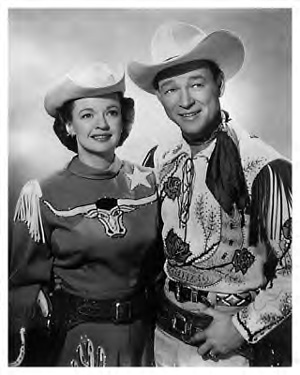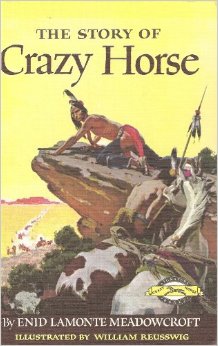 Articles in this section are from the past 6 to 12 months,
Articles in this section are from the past 6 to 12 months,
For though we walk in the flesh, we are not waging war according to the flesh. For the weapons of our warfare are not of the flesh but have divine power to destroy strongholds. We destroy arguments, and every lofty opinion raised against the knowledge of God. II Corinthians 10.3-5 ESV
Finally, be strong in the Lord and in the strength of His might. Put on the whole armor of God, that you may be able to stand against the schemes of the devil. For we do not wrestle against flesh and blood, but against rulers, against authorities, against the cosmic powers over this present darkness, against the spiritual forces of evil in the heavenly places. Ephesians 6.10-12 ESV
 Last week our newly minted governor pulled tap shoes from his carpet bag and danced a little two-step around the issue of Virginia’s ban on gay marriage. As governor he is bound to uphold the law of the commonwealth. Politically, however, he would like to see the ban overturned. Somehow he argued both sides and made the question of same-sex marriage about jobs for Virginians. Balanchine would have been impressed with his footwork.
Last week our newly minted governor pulled tap shoes from his carpet bag and danced a little two-step around the issue of Virginia’s ban on gay marriage. As governor he is bound to uphold the law of the commonwealth. Politically, however, he would like to see the ban overturned. Somehow he argued both sides and made the question of same-sex marriage about jobs for Virginians. Balanchine would have been impressed with his footwork.
Oh well, what else would one expect from a politician? Our concern as citizens of Heaven should be what response to our times would best represent the values of Jesus? We are His disciples, thus our actions should reflect His teachings.
Jesus, in the Sermon on the Mount simultaneously rejects certain Western values (Matthew 6.7, 32; see also Mark 10.42-45), and forbids any nastiness on our part towards persons in opposition to our beliefs (Matthew 5.43-48).
In fact, as Paul makes clear in the verses cited above, persons are never the enemy, ideas are. So also is Satan, the source of the false notions that distort human understanding and pervert human behavior. Humans, even ones with terribly wrong opinions (especially ones with terribly wrong opinions) are to be prayed for and loved.
Paul not only preached this but he lived it. Remember the sinful behaviors the Corinthians were involved in before they became Christians (I Corinthians 6.9-11). Included in this list are men who receive sexual advances from other men and the men who make those advances (v. 9). The list ends with the phrase, “and such were some of you,” (v.11). Paul evangelized gay men. How did Paul reach these gay men with the Gospel? Perhaps he made jokes at their expense. Perhaps he said nasty things about them and their activities. Perhaps he just acted disgusted. Maybe he marched with a sign somewhere. Perhaps he raged on a Facebook page, or tweeted clever insults. Maybe he watched cable news until his blood-pressure popped the sphygmomanometer.
I think he established caring relationships and shared the word of God. Paul tells us that is his modus operandi when beginning a new work (I Thessalonians 2.1-12). Paul reminds us that good, godly strategy demands that we do not allow ourselves “to be overcome with evil, but overcome evil with good,” (Romans 12.21). I think Paul had little concern about the state of the Roman Empire, and complete concern about the Kingdom of God.
I think we should follow this Biblical example.
Everyone knows that the difference between the good guys and the bad guys is that the good guys care about collateral damage. The bad guys don’t care who they hurt so long as they win. The terms of our warfare demand that we be the good guys.
New Liskeard is a wide open field for workers. In the words of Jesus, “The harvest is ripe and the reapers are few.” Jesus also said “Go into all the world and teach the gospel.” I believe on the day of judgment we will have to give an answer why we did not try to teach others the Gospel of Christ. There are many areas within our reach where the truth has not yet been taught. Other groups sow and reap for their master – Satan.
Thus concludes the journal my grandfather, John Browning, kept of the mission trip we took to New Liskeard, Ontario, during the summer of 1985. My grandfather was in his element, and in his glory that summer, for he enjoyed nothing better (not even golf) than knocking doors. He was good at it, too. Wholly without guile, gregarious, kindly, with a beaming smile – people would open the door and talk to him as long as he wanted to stay. Before we went to Canada, I always thought he was so good at door knocking because he did it in the small town he had lived in all his life. He was never separated from the person behind the door by more than two or three degrees of contact. But he was no less successful a thousand miles due north, closer to the Hudson Bay than to home.
 I was the leader of the trip. At 23, and as a newly minted “Associate Minister,” I was always looking for things to do to keep me from being pigeonholed a “youth minister.” When members of our congregation brought us the invitation to help a church planting in a little town 8 hours due north of Toronto I jumped at the chance to put a team together and plan a mission trip. Teresa and I; Kermit Stephens, one of our elders; my grandfather, the Dennisons (who brought us the invitation), Kevin Large, one of our young adults, and Matt Pittman from the youth group loaded up the church van and headed to the great, white North.
I was the leader of the trip. At 23, and as a newly minted “Associate Minister,” I was always looking for things to do to keep me from being pigeonholed a “youth minister.” When members of our congregation brought us the invitation to help a church planting in a little town 8 hours due north of Toronto I jumped at the chance to put a team together and plan a mission trip. Teresa and I; Kermit Stephens, one of our elders; my grandfather, the Dennisons (who brought us the invitation), Kevin Large, one of our young adults, and Matt Pittman from the youth group loaded up the church van and headed to the great, white North.
I was the door-knocking partner of my grandpa for a few days of our trip. I had been his door knocking partner countless times before. I found out on this trip that his gift wasn’t limited to a couple of towns in Wane County, West Virginia. We had the door slammed in our faces only once – by a retired GM Executive who couldn’t get my granddad to give the new congregation a denominational affiliation. Otherwise the old charm worked as well in Ontario, as it did in Appalachia.
We had a great trip (despite the fact that I got food poisoning on the last day and nearly died of dehydration on the way home). We knocked 1238 doors and had 24 positive responses. If my records are correct, over the next year there were 3 baptisms of contacts we made.
My grandfather’s journal is the only real record we have of the day-to-day details of the trip. I reread it often, and can hear his voice in my ears, full of excitement at our evangelistic success. “This is a wonderful campaign. I will never forget it,” he wrote at the beginning of our last day. I am proud I was the one who planned the trip, and got him on a foreign field before he died. I would feel better, though, if I were one tenth the evangelist he was.
I used to believe he was so good because it was his gift. Peter and Paul both remind us that we have different gifts (Romans 12, I Corinthians 12, I Peter 4). But the call to evangelize is not limited to a gifted few – it is all encompassing (Matthew 28.18-20). The things I notice, time after time, when reading my grandfather’s mission trip journal are urgency, responsibility, and joy. He had the mindset of a spiritual first-responder – he was urgent about the lost. He believed the call to evangelize was personal – that he would give an account before God. He was so glad that God loved him, and was glad to share the good news about that love with others.
Maybe those three characteristics are the elements of the gift. If so we should all be gifted evangelists.
 The other day a thirty year search ended. After decades excavating used book shops and spelunking in thrift stores I found a copy of The Story of Crazy Horse by Enid Lamonte Meadowcroft, and illustrated by William Reusswig at Prospero’s in Old Town. It was part of the Signature Books series by Grosset & Dunlap, and was the first book about which I did a real book report. It was the first book I couldn’t put down – the first of a long line. It was assigned to me by my fourth grade teacher, Mrs. Jordan. She was a first year teacher. She was quiet and kind and all us boys were in love with her. She was big on reading to us, which she did at the end of every school day. She would read books that were a little below our grade level, but she would make us think about how they were written. She read Charlotte’s Web, and made us pay attention to alliterations like “garrulous geese,” and how phrases like, “the nearness of rats, the sameness of sheep,” are music because they both have five beats. She didn’t weep when she read of Charlotte’s death, but when she read the last two paragraphs of the book her voice broke and the tears rolled. “These last two paragraphs are perfect,” she said. And they are.
The other day a thirty year search ended. After decades excavating used book shops and spelunking in thrift stores I found a copy of The Story of Crazy Horse by Enid Lamonte Meadowcroft, and illustrated by William Reusswig at Prospero’s in Old Town. It was part of the Signature Books series by Grosset & Dunlap, and was the first book about which I did a real book report. It was the first book I couldn’t put down – the first of a long line. It was assigned to me by my fourth grade teacher, Mrs. Jordan. She was a first year teacher. She was quiet and kind and all us boys were in love with her. She was big on reading to us, which she did at the end of every school day. She would read books that were a little below our grade level, but she would make us think about how they were written. She read Charlotte’s Web, and made us pay attention to alliterations like “garrulous geese,” and how phrases like, “the nearness of rats, the sameness of sheep,” are music because they both have five beats. She didn’t weep when she read of Charlotte’s death, but when she read the last two paragraphs of the book her voice broke and the tears rolled. “These last two paragraphs are perfect,” she said. And they are.
So when she assigned our first book report I knew it had to be good. I wanted to do Guadalcanal Diary, by Richard Tregaskis, or Thirty Seconds over Tokyo, by Captain Ted W. Lawson (which was really beyond my comprehension level at the time), but Mike Trimble and Chip Stowasser got to them first, so I grabbed the coolest book left – The Story of Crazy Horse, by Enid Lamonte Meadowcroft. Honestly, if I had noticed that the book was by a girl I wouldn’t have checked it out – it wouldn’t have been cool (S .E. Hinton, the coolest author of juvenile fiction ever is a girl.) All I knew then was that from the first line, “It was August – the month which the Indians call the moon when cherries turn black…” I was hooked.
I don’t have the report anymore (I wish I did), but I remember I got an A, and words of approval from Mrs. Jordan – and I got an itch to know, to love, to understand a text. I come from a family of readers at least three generations back, and I was a reader when I picked up The Story of Crazy Horse, but Mrs. Jordan had taught us to read more deeply than the narrative arc. There is the story, yes, then there is how the story is told, and that is as important. That was the moment, for me, when reading eclipsed television, or cinema as a medium of communication.
Which is fortunate because God didn’t make a movie or a mini-series, he gave us a book. More precisely stated - He gave us THE BOOK. THE BOOK is the place we hear His voice, where we learn His truth, the place we commune with His Son, the place where he hear His promises, the place where we are “thoroughly equipped for every good work” (II Timothy 3.17). Whenever I preach or teach I try to do for you what Mrs. Jordan did for us.
Because reading THE BOOK must be an act of love. It cannot be a chore. If we think of it as a chore, it will not have its full, transformative work. God has made it a book we will love if we open our hearts to it. Jesus is there, and Jesus is everything. Which poet is better than David? Which warrior’s biography surpasses his? Which book contains more wisdom than Proverbs, or more theological depth than Job? Where are there better people to be met than the ones we meet in Bethlehem or Bethany? What other book is so specific about what was, what is, and what will be?
If you open your heart to The Book you will not need me, or Mrs. Jordan, or a book about Crazy Horse, or a book about Guadalcanal. God, Himself, will draw you in.
In the beginning was the Word. The Word was with God and the Word was God. John 1.1
 Those beautiful, poetic words which open the Gospel of John are the first words a student of New Testament Greek reads in the original language. In Greek this line is even more beautiful and poetic as it contains internal rhyme, alliteration, and meter. In terms of vocabulary and syntax they are the NT Greek equivalent of “See Spot run.” Theologically, however, this is perhaps the most profound line in the Bible. “The Word” refers to Jesus, which becomes crystal clear by verse 14. That Jesus would be called “The Word” alone could occupy a lifetime of study, thought, and prayer. John starts us off on such a journey by explaining that the Word was God’s method, mode, and medium of creation. This we know from Genesis 1, a passage John intentionally evokes here. God spoke words and the universe emerged. John tells us that the power of creation was not in words, but “the Word.”
Those beautiful, poetic words which open the Gospel of John are the first words a student of New Testament Greek reads in the original language. In Greek this line is even more beautiful and poetic as it contains internal rhyme, alliteration, and meter. In terms of vocabulary and syntax they are the NT Greek equivalent of “See Spot run.” Theologically, however, this is perhaps the most profound line in the Bible. “The Word” refers to Jesus, which becomes crystal clear by verse 14. That Jesus would be called “The Word” alone could occupy a lifetime of study, thought, and prayer. John starts us off on such a journey by explaining that the Word was God’s method, mode, and medium of creation. This we know from Genesis 1, a passage John intentionally evokes here. God spoke words and the universe emerged. John tells us that the power of creation was not in words, but “the Word.”
But the rest of that first verse transcends even our ability to imagine. God is One (Deuteronomy 6.4). How can one be God, and be with God simultaneously? To be with someone means to be in their presence. But it also understands that one is not the person one is with. To be beside another demands that one we are beside is other than us. How can you be someone, and be with that same one? And what does that tell us about God? We often use the word “trinity” to name what the Bible describes, but it is not a biblical word, and isn’t particularly helpful. Neither are Patrick’s example of the shamrock (three leaves make one clover), or Hinduism’s chanted oum (three letters make one sound). Jesus is God, and Jesus is with God (at His right hand, to be specific – Hebrews 10.12 ). We know that it is true. We don’t know how it is true.
And that is as it must be if it is true. If our God could be mastered by an individual, finite brain, He wouldn’t be much of a god, as J.B. Phillips pointed out years ago in his book Your God is too Small. There is but One God. Yet there is some dynamic at work which allows the Son to be at the right hand of the Father, and yet which insists that the two are only one person. This has been true from the beginning. Add to this the fact that the Son is now fully human as well as divine (Hebrews 2.10-18). He is God, and He is us. We know that this is true. We do not know how it is true. This is how it must be if our God is God.
I am about to do things in your day you would not believe even if I explained them to you. Habakkuk 1.5
‘My thoughts are not your thoughts, neither are My ways your ways,’ says the LORD. ‘For as high as the heavens are above the earth, so are My ways higher than your ways, and My thoughts higher than your thoughts.’ Isaiah 55.8-9
On a fairly regular basis, back when I was a teen, we used to have Bible class teachers who used the overhead projector obsessively. Some had pretty cool visuals. Others had elaborate outlines domesticating biblical truth –penning it up in manageable portions. An outline is a wonderful tool to use when a vast amount of information needs to be organized. Some of these outline makers seemed to have more faith in the outline than in the word – as if this organizational tool could reduce every biblical truth to an easily mastered factoid. This is hubris. It is a virulent form of blasphemy to believe that God is small enough to be mastered by the human mind. It demonstrates a lack of faith in Faith to insist we know how as well as what.
God has given us everything we need that pertains to life and godliness (II Peter 1.3). He has communicated everything we need to be saved and enjoy the abundant life. God has given us minds suited to understand and to respond to this information. He gives us the power to respond, and grace when we repent. He gives us constant, unconditional love. What more do we need for our journey?
 A few years ago, when we had a Men’s Sojourner’s Prayer Group in addition to our women’s group, we men would begin our sessions with a period of singing. The six or eight of us would sit around a folding table and sing six or eight songs at the top of lungs into each other’s faces – it was heaven, or at least a taste of it. I have heard, over the years, some say that if we are to spend eternity singing, they expect to be bored. Not me. I like to sing. I like to sing bass. I like to sing loud. I like when we all sing together.
A few years ago, when we had a Men’s Sojourner’s Prayer Group in addition to our women’s group, we men would begin our sessions with a period of singing. The six or eight of us would sit around a folding table and sing six or eight songs at the top of lungs into each other’s faces – it was heaven, or at least a taste of it. I have heard, over the years, some say that if we are to spend eternity singing, they expect to be bored. Not me. I like to sing. I like to sing bass. I like to sing loud. I like when we all sing together.
Which is why it was a terrible blow when my Ear, Nose, and Throat specialist told me I was developing a polyp on the left side of thy third vocal cord, and that I had to rest my vocal cords for several months. This meant no shouting, no whispering, nothing too hot or too cold to drink and absolutely NO singing. I didn’t obey absolutely. I did lead a “call to worship” song every Sunday – softly singing right into the microphone. But I had to forego pre-school chapel, and have had to sit and listen to you all sing these past months without joining in.
Let me say that you all sound wonderful. I’d rather sit in the midst of my church family and hear them sing the old hymns than listen to the Robert Shaw Chorale sing Barbour’s Adagio at Carnegie Hall any day of the week and twice on Sundays. I love to sit up front with all of you singing into the back of my head, and pick out particular voices. I can remember other voices from other congregations, many of them now gone. I wonder if one day, when we are home, I will be able to identify Neil Kent’s tenor, or my grandmother Bryson’s unmistakable alto somewhere in the heavenly chorus?
But - how hard it is not to sing with you. “Is anyone happy? Let him sing song of praise,” (James 5.13). God has provided us a release, a way to express our joy in Him, and that release is singing. David, in the psalms, demonstrates that singing is not just the best tool to express joy – but is suited to the full range of human emotions. There is no substitute which suffices.
My voice is now back a bit, but it isn’t strong. My vocal cords feel like delicate filaments which a strong blast would surely break. I can sing again, but I can’t cut loose. “I doubt I’ll ever be able so sing again,” I said to my daughter Jill over the holidays. “You can,” she replied “You just don’t have to sing every song like you’re the Pirate King from ‘Pirates of Penzance.’” “Yes I do,” I replied.
I’ve said a permanent farewell to the Pirate King – at least until this corruptible body is clothed in incorruption. I am blessed to be able to sing along with you again (albeit timidly), and I hope you will sing out more loudly to make up for the deficit (especially you basses). Most of all I hope that you will cherish the blessing we share when we sing together – whether it’s an old hymn or a new favorite, something by J. S. Bach or by A. E. Brumley. Singing together is a gift. We taste that gift now, but will enjoy it fully, eternally when we get home.

